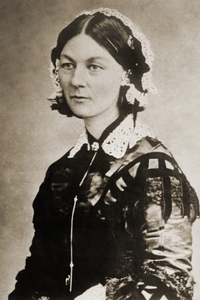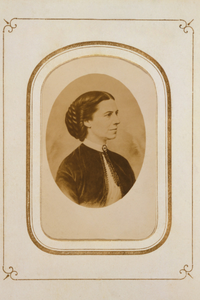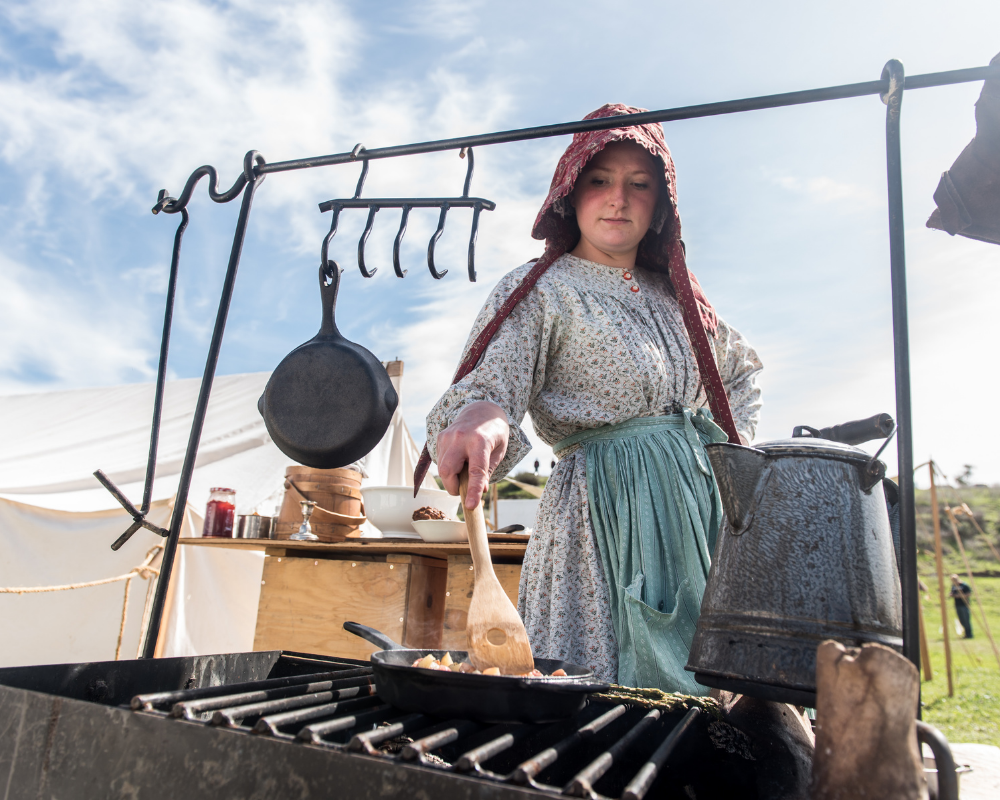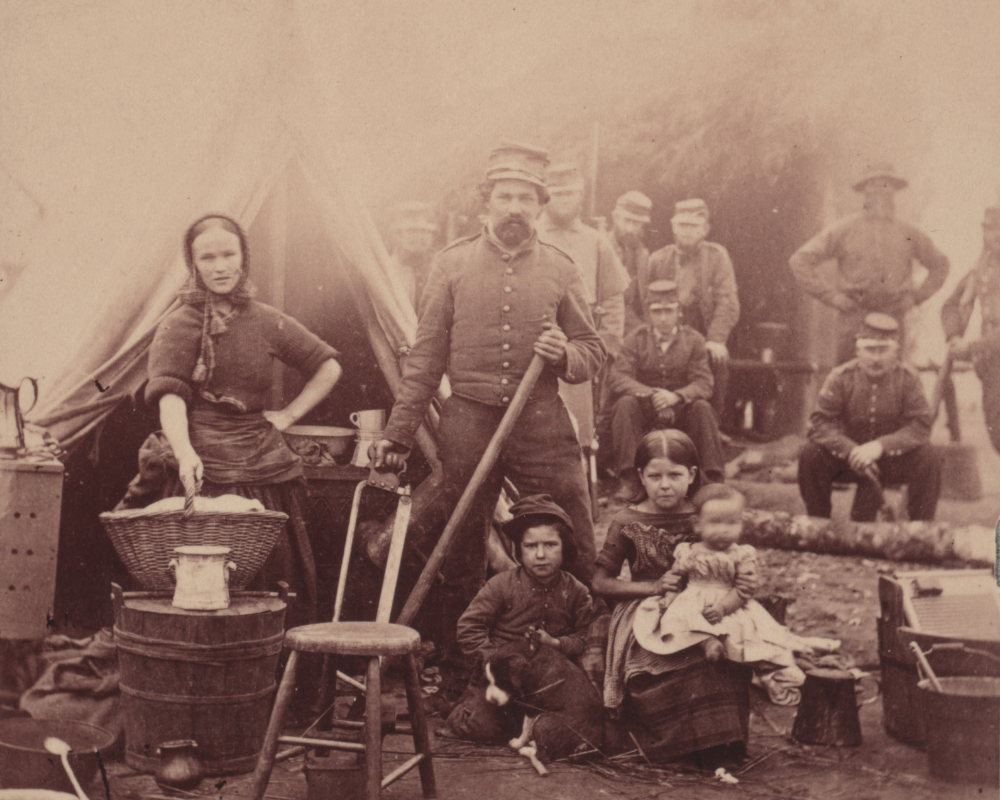
Women During The Civil War
**The information below is from History.com Women in the Civil War. We hope it helps to define the role women played during this stormy period of our history.
The lives of American women were shaped by a set of ideals that historians call “the Cult of True Womanhood” before the Civil War. The household became a new kind of place: a private, feminized domestic sphere, a “haven in a heartless world”, as men’s work moved away from home into factories, shops and offices. “True women” devote their lives to creating a clean, comfortable nurturing home for their husbands and children.
American women turned their attention to the world outside the home during the Civil War. Thousands ob women in both the North and South joined volunteer brigades and worked as nurses. It was the first time in American history the women played an important role in a war effort. By the end of the war, these experiences had expanded may Americans’ interpretation of “true womanhood.”
Fighting for the Union
With the outbreak of war in 1861, women and men alike eagerly volunteered to fight for the cause. Women organized ladies’ aid societies to supply the Union troops with everything they needed, from food (they baked and canned and planted fruit and vegetable gardens for the soldiers) to clothing (they sewed and laundered uniforms, knitted socks and gloves, mended blankets and embroidered quilts and pillowcases) to cash (they organized door-to-door fundraising campaigns, county fairs and performances of all kinds to raise money for medical supplies and other necessities).
But many women wanted to take a more active role in the war effort. Inspired by the work of Florence Nightingale and her fellow nurses in the Crimean War, they tried to find a way to work on the front lines, caring for sick and injured soldiers and keeping the rest of the Union troops healthy and safe.
In June 1861, they succeeded: The federal government agreed to create “a preventive hygienic and sanitary service for the benefit of the army” called the United States Sanitary Commission. The Sanitary Commission’s primary objective was to combat preventable diseases and infections by improving conditions (particularly “bad cookery” and bad hygiene) in army camps and hospitals. It also worked to provide relief to sick and wounded soldiers. By war’s end, the Sanitary Commission had provided almost $15 million in supplies–the vast majority of which had been collected by women–to the Union Army.


Clara Barton, of course, is the most famous Civil War nurse. She supplied her own wagon and drove out to the field of battle to tend to wounded soldiers. She did this without any permission of the War Department, but she was so successful, and the rate of soldiers returning to duty who had been under her care was so great, that the War Department later authorized her to be on the field of battle wherever she could get to.
Nearly 20,000 women worked more directly for the Union war effort. Working-class white women and free and enslaved African-American women worked as laundresses, cooks and “matrons,” and some 3,000 middle-class white women worked as nurses. The activist Dorothea Dix, the superintendent of Army nurses, put out a call for responsible, maternal volunteers who would not distract the troops or behave in unseemly or unfeminine ways: Dix insisted that her nurses be “past 30 years of age, healthy, plain almost to repulsion in dress and devoid of personal attractions.” (One of the most famous of these Union nurses was the writer Louisa May Alcott.)
Army nurses traveled from hospital to hospital, providing “humane and efficient care for wounded, sick and dying soldiers.” They also acted as mothers and housekeepers–“havens in a heartless world”–for the soldiers under their care.
Did you know? More than 400 women disguised themselves as men and fought in the Union and Confederate armies during the Civil War.
Women of the Confederacy
White women in the South threw themselves into the war effort with the same zeal as their Northern counterparts. The Confederacy had less money and fewer resources than did the Union, however, so they did much of their work on their own or through local auxiliaries and relief societies. They, too, cooked and sewed for their boys. They provided uniforms, blankets, sandbags and other supplies for entire regiments. They wrote letters to soldiers and worked as untrained nurses in makeshift hospitals. They even cared for wounded soldiers in their homes.
Many Southern women, especially wealthy ones, relied on slaves for everything and had never had to do much work. However, even they were forced by the exigencies of wartime to expand their definitions of “proper” female behavior.
Some Southern women and children traveled with their husbands while they were fighting the war. They wanted to be near their husband and nurse them if needed. It was a hard life but the women took care of the men, cooked, repaired uniforms and worked as nurses during their time at the camps.
Not every woman during the war had to leave their homes. They proved that they were able to run their husband’s businesses, manage the family farm, getting crops out of the field, and keep things going on the home front. This was a huge step towards independence for women. Women showed that women were capable and do more than Victorian society had previously guessed.

